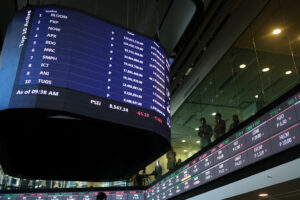UK private sector hiring has fallen at its fastest rate since the global financial crisis (excluding pandemic disruptions), compounding fears that the economy may be edging closer to recession.
Fresh data indicates that rising employment costs, triggered in part by Chancellor Rachel Reeves’s decision to hike business taxes, are prompting companies to shed staff and scale back investment as consumer demand softens.
According to December’s flash composite purchasing managers’ index (PMI) from S&P Global, business activity largely stagnated, remaining unchanged at 50.5 and hovering just above the critical 50-point threshold that separates growth from contraction. The survey results fell short of analysts’ expectations and signal that the robust expansion experienced earlier this year has dissipated.
Economists at Capital Economics suggest that the current PMI data is consistent with the UK economy contracting by as much as 0.3% quarter-on-quarter in the final months of 2024, raising the risk that Britain could enter a recession early next year. Two consecutive quarters of shrinking output define a recession, and recent indicators point to a challenging near-term outlook.
However, some analysts caution against reading too much into the PMI figures. Matt Swannell, chief economic advisor at EY ITEM Club, notes that the index tends to overreact to changes in sentiment, which has tumbled since the Chancellor’s late-October budget announcement, rather than reflecting underlying economic activity. Others add that the PMIs do not fully capture the impact of the government’s £70bn increase in public spending, which many expect to boost GDP growth and soften the blow of weaker private sector investment.
Support authors and subscribe to content
This is premium stuff. Subscribe to read the entire article.









